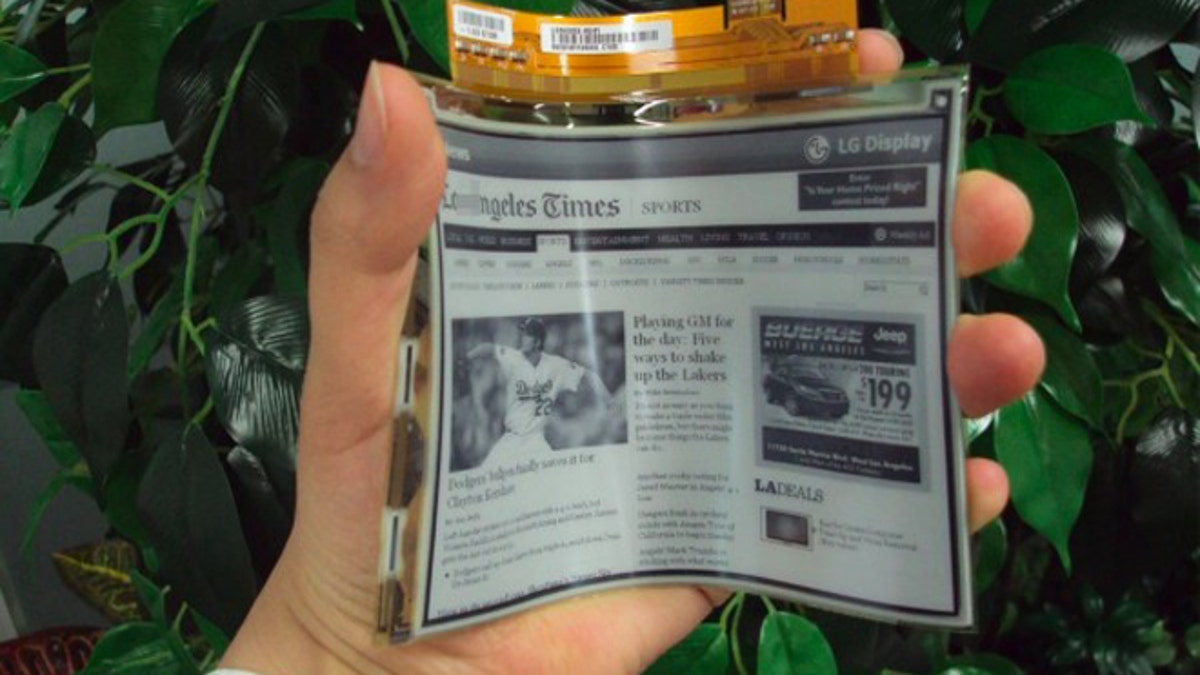
Mar. 29, 2012: LG Displays announced plans to begin manufacturing flexible LCD screens, suggesting that roll-up ebooks are just around the corner. (LG Displays)
LG Displays announced plans to begin mass production of a roll-up, plastic display screen Thursday -- potentially leading to tablets, iPads or even TVs you can roll up and stuff into a bag. But don't throw out that old flat panel display just yet.
Bendable screens have been a dream of the electronics industry since they were merely a twinkle in George Jetson’s eye. LCD manufacturing giant LG and others have been pursuing such display technology for years. And on Thursday, March 29, LG Displays said the world’s first roll-up screen -- something it calls an electronic paper display, or EPD -- would be released to gadget makers in Europe next month.
"With the world's first plastic EPD, LG Display has once again proven its reputation for leadership and innovation with a product we believe will help greatly popularize the E-Book market," said Mr. Sang Duck Yeo, head of operations for LG Display's Mobile/OLED division.
"We are excited as we look toward applying concepts from this experience to future developments like plastic OLED and flexible displays," he added.
But don't reach for your wallet just yet. Alfred Poor, a display industry expert and the brains behind HDTVProfessor.com, said the announcement was less revolutionary than evolutionary.
"This is a relatively small development in the grand scheme of things," Poor told FoxNews.com, ticking off a list of items that may make such displays less appealing to consumers.
"This appears to be a monochrome (black and white) epaper display. This means that it ... has low power consumption, but it also means that it's probably slow and not suitable for moving images such as video. It's not in color, and probably has limited grayscale capabilities," he added.
The company said its 6-inch e-ink, plastic screen is destined first for the e-book market; the new screen offers a paper-like reading experience, in spite of the ability to bend up to 40 degrees. It weighs just half an ounce and is virtually impervious to shattering if dropped, a common problem with e-readers.
Poor acknowledged that some of those features might be appealing, especially the light weight and improved durability.
"This could result in some minor cost reductions through lower material costs, lighter weight, and smaller size for a device," he said. "But the more significant point is that this could result in more durable displays for larger mobile devices. An ebook reader with a plastic display is more likely to survive a drop than one with a glass display," Poor told FoxNews.com.
LG said a technology breakthrough with high-temperature manufacturing allowed it to finally produce the screens.
The company did not say when the screen would be made available to U.S. markets.








































